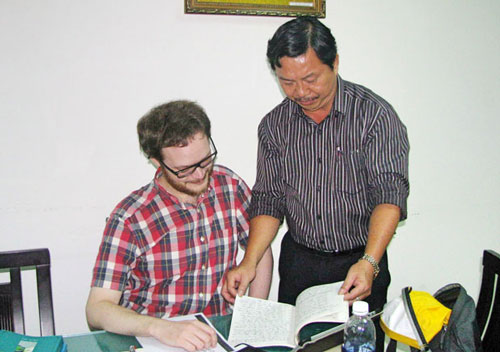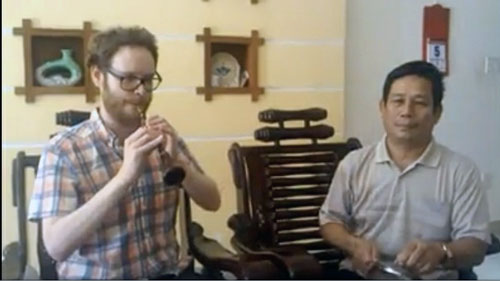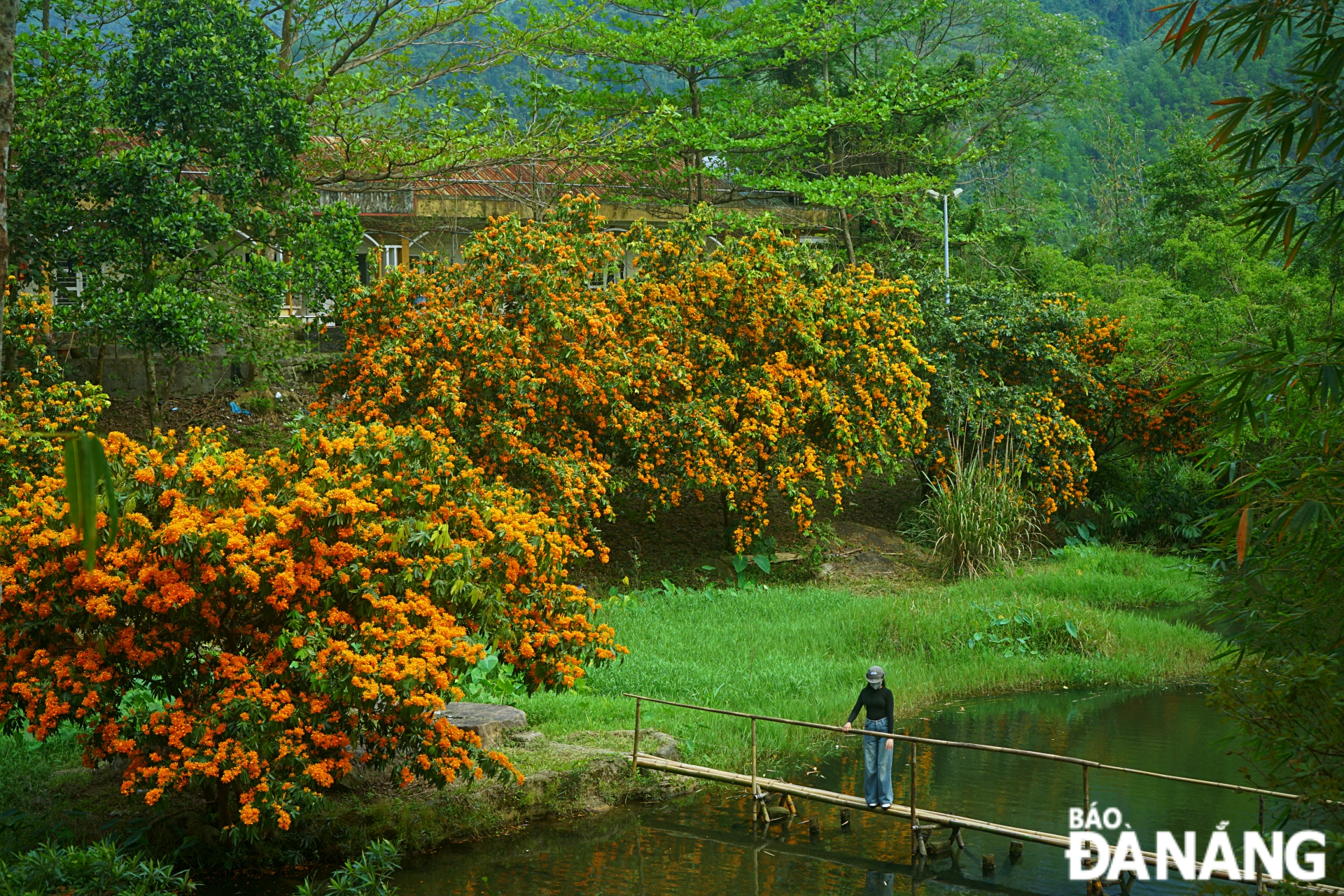Foreigner with strong enthusiasm for "tuong"
Mr Esbjőrn Wettermark from Sweden has a strong passion for researching into “tuong” (classical drama), along with other traditional Vietnamese art forms.
Mr Wettermark’s fascination for “ca tru” (ceremonial singing) began in 2003 when he was a freshman at the Music Faculty of the Royal Holloway College, which is part of the University of London in the UK. At that time, he attended a 3-month course in “ca tru” which was taught by Vietnamese artiste Pham Thi Hue. In 2005, he travelled to Viet Nam to learn more about this kind of musical genre, as well as the cultural values and people of Viet Nam. During his visit, Mr Wettermark spent much of his time meeting with numerous Vietnamese artistes and he discovered that “tuong” was as attractive to him as “ca tru”. He then visited Viet Nam many more times to compile a database for a Masters’ thesis on “ca tru”, and he then decided to write a doctoral dissertation on “tuong”.
 |
| Mr Tuan (right) and Mr Wettermark examine “tuong” |
Between 2010 and 2012, Mr Wettermark spent a lot of time learning the Vietnamese language. His Vietnamese writing and reading skills are now good, which helps in his research into “tuong”. He said that this art form shows off its highly-stylised music and diversified chronological orders, along with the accompanying sounds of drums and wind instruments. He added that the characteristics of “tuong” are totally different from those of Peking opera, which is a form of traditional Chinese theatre.
 |
| Mr Wettermark playing a wind instrument |
The Director of the Nguyen Hien Dinh Tuong Theatre, Mr Tran Ngoc Tuan, said that he was very surprised by Mr Wettermark’s thorough grasp of “tuong”. He remarked that the Quang Nam-Da Nang “tuong” version has unique characteristics and it should be preserved for future generations.
Mr Wettermark hopes that his research into “tuong” will help people across the world understand more about, and fall in love with, this traditional art form. In addition, he will write more papers about “tuong” in English in order to promote it to international friends.




